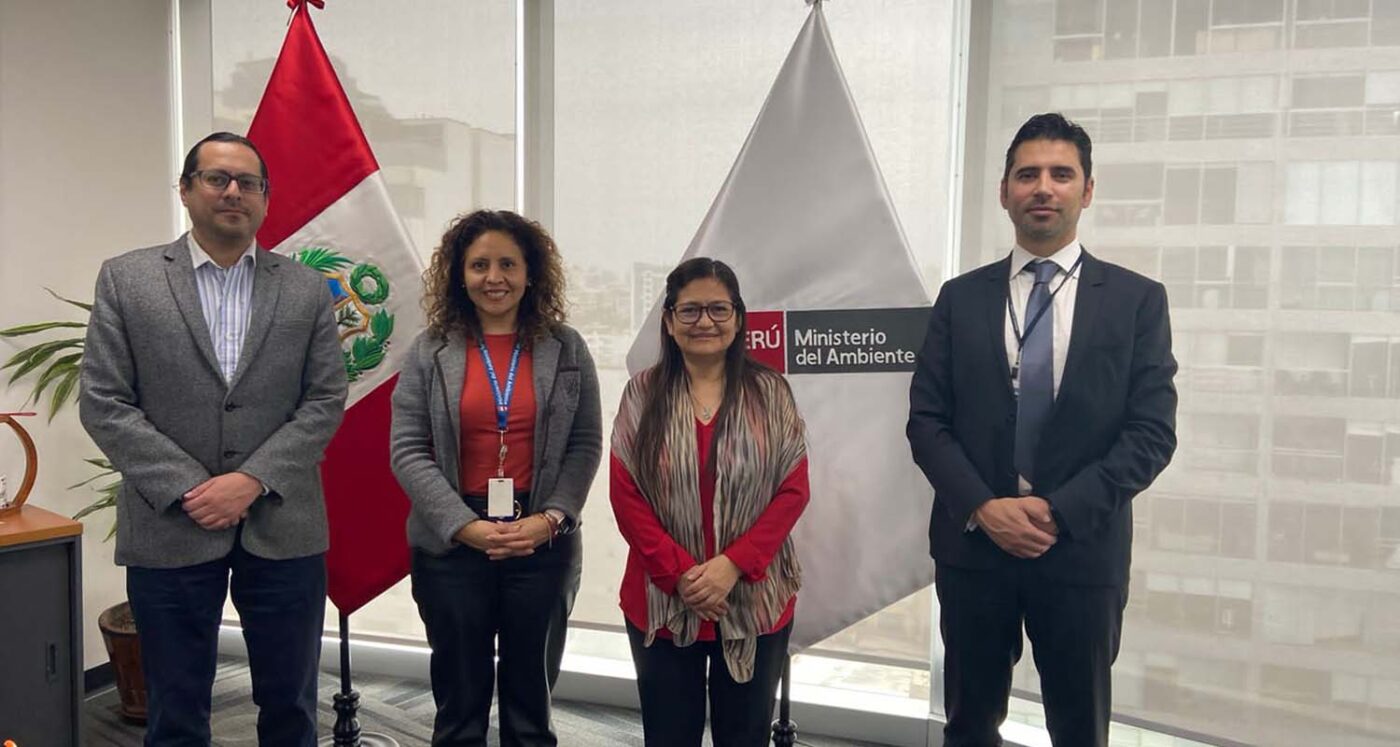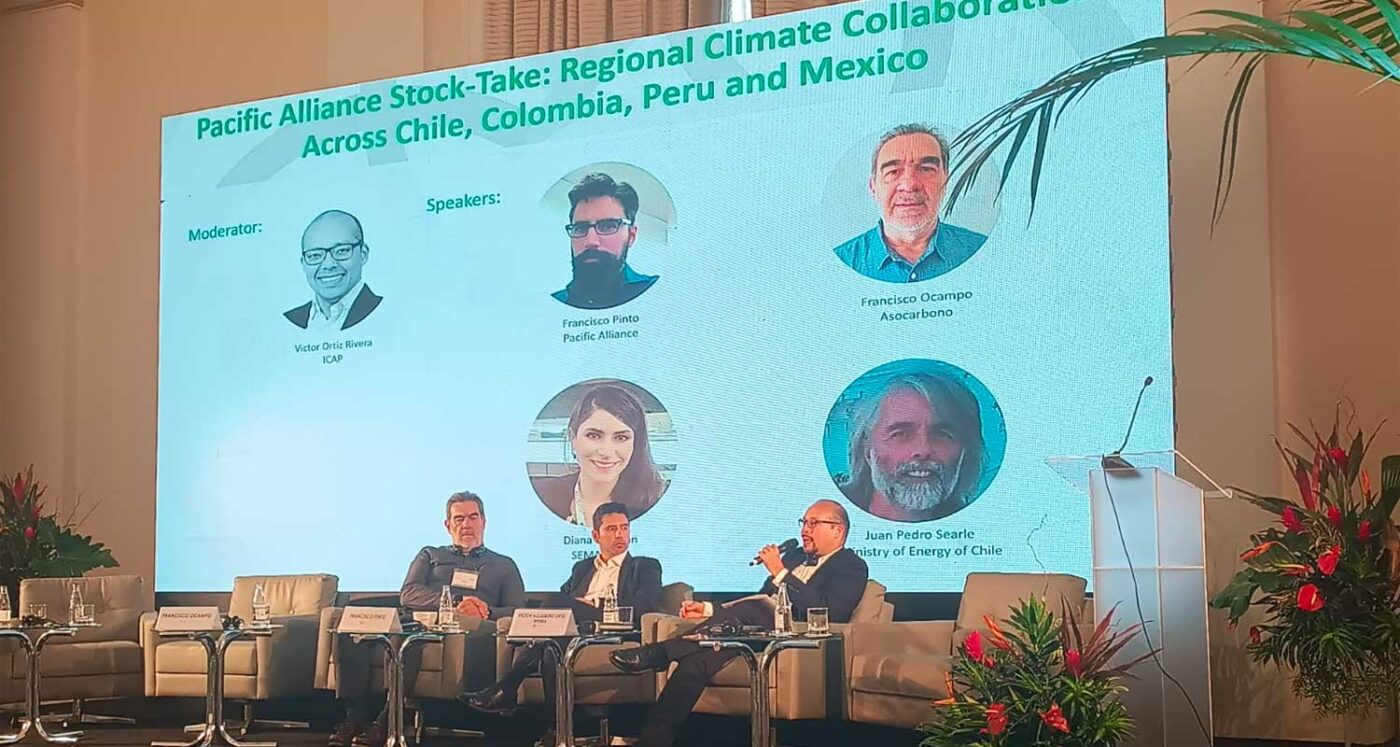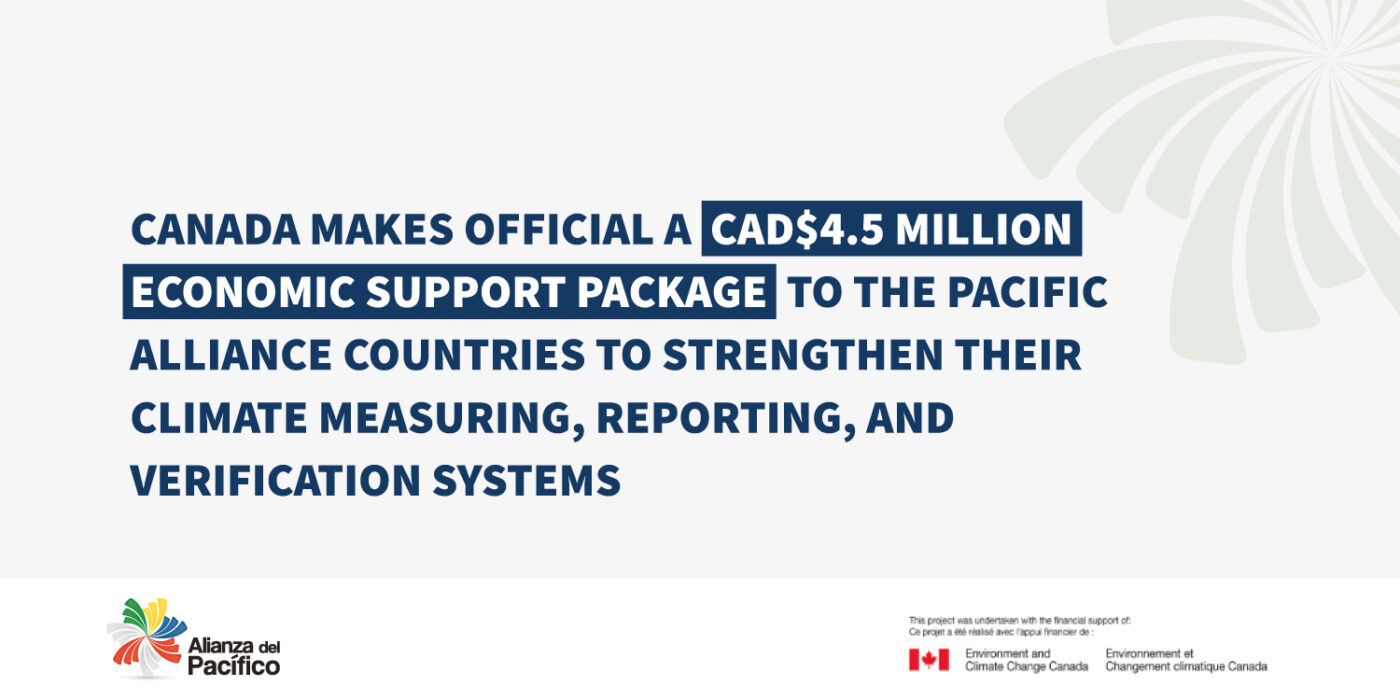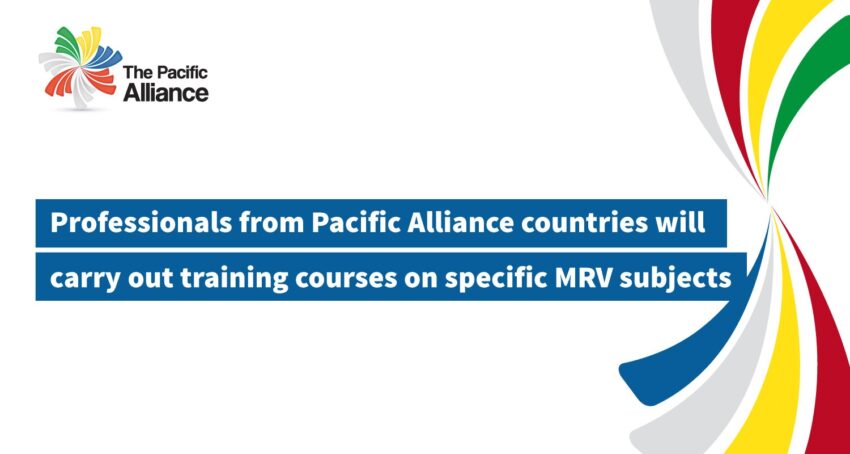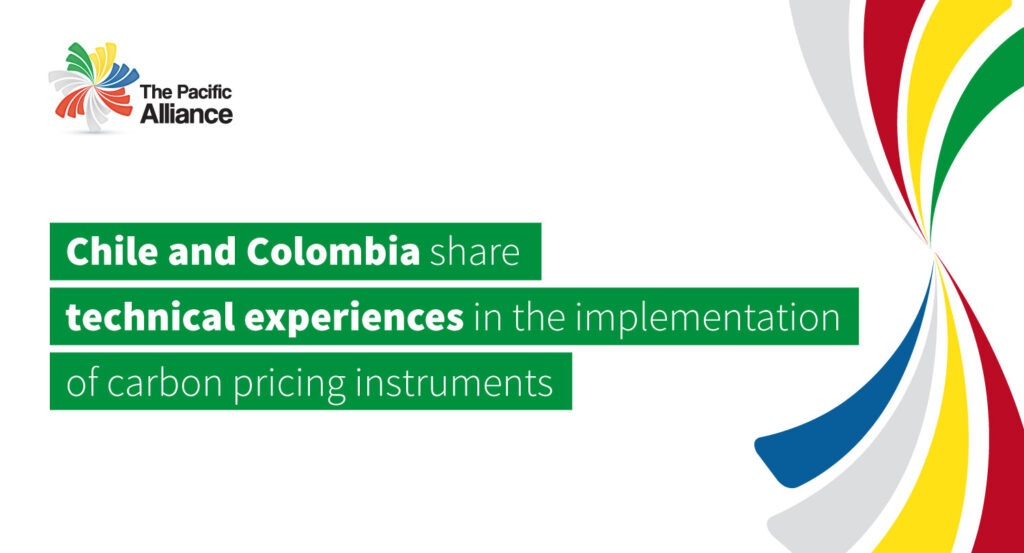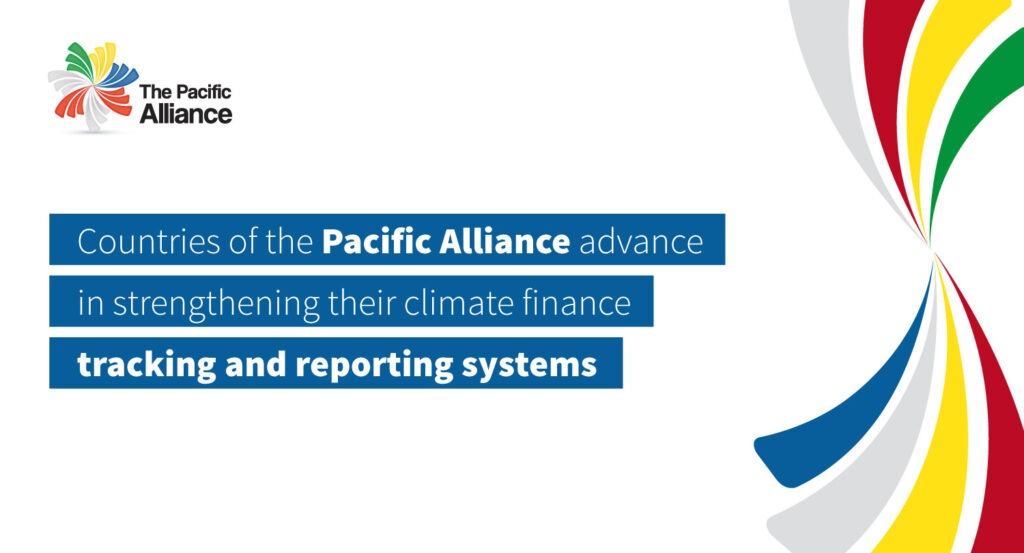August 2nd, 2022.- Canada announced on July 14th a new support package for the Pacific Alliance countries with the objective of strengthening domestic climate measuring, reporting and verification (MRV) systems. The best development and quality of these information systems are the key to design and implement coherent, robust, and effective climate policies.
The announcement was made by the Canadian Minister of the Environment and Climate Change, Steven Guilbeault, at the 29th annual session of the Council of the North American Commission for Environmental Cooperation, held in Mérida, Mexico, where he met with the Secretary of the Environment and Natural Resources of Mexico, María Luisa Albores González, in which he announced CAD$4.5 million for the next four years to support the Pacific Alliance countries.
The member countries of the Pacific Alliance recognize that climate change today represents the main threat to human development, and they also understand that the region is an extremely vulnerable area to its effects. All four countries have made significant efforts to adjust and they have committed to ambitiously reducing their greenhouse gas emissions. Furthermore, today they face the challenge of moving towards a green recovery after the social and economic ravages caused by the COVID-19 pandemic.
In 2018, after the Declaration of Cali 2017, the Pacific Alliance reaffirmed its individual and collaborative commitments to the Paris Agreement, making the decision to strengthen information to monitor the impacts of the implementation of actions, programs, and policies. Under this approach, the countries stressed the need for a better understanding and compatibility of their MRV systems. Then, the MRV Technical Subgroup of the Pacific Alliance (SGT-MRV) comes up as an opportunity to work jointly and collaborate among the countries of the region to address this need.
Thanks to a first support package from the Government of Canada, it was possible to develop and implement a Coordination Framework that guided the work of the SGT-MRV between 2018 and 2021. In this first phase, the focus was on MRV of climate financing, mitigation actions, and carbon price instruments, establishing a broad and active community of exchange and knowledge around the MRV systems in the Pacific Alliance countries.
This second support package, which will be implemented by the Gold Standard Foundation, consolidates the work of the SGT-MRV. It will undoubtedly be a fundamental contribution to continue advancing the robustness, transparency, and harmonization of our MRV systems. As well as an opportunity to continue promoting decision-making based on data and evidence, and improve the implementation of the regional climate agenda.
To start this second phase, the SGT-MRV focal points will come together on August 3rd and 4th in Bogotá, Colombia, to assess the first phase of implementation, as well as officially launch the second phase and define the main milestones to accomplish in the next four years.
Some of the reactions of the governments involved:
“Climate change is affecting communities and countries around the world. Global solutions, including Canada’s climate finance commitments, are vital in helping countries not only track and understand their emissions but also increase their climate action. Our engagement with the Pacific Alliance will provide new tools and help national and local governments to build the capacity to establish effective and efficient climate measuring, reporting, and verification (MRV) systems to set mitigation priorities and attract the funding needed to implement their Nationally Determined Contributions (NDC)”.
– Steven Guilbeault, Minister of Environment and Climate Change of Canada
“Gold Standard hopes to support cooperation between governments to maximize the impact of climate finance and achieve the ambitions of the Paris Agreement, but also – and this is important – to warrant that this financing offers tangible contributions to the national development priorities of the countries. Pacific Alliance governments and support local capacity to unlock ongoing progress towards the Sustainable Development Goals (SDG)”.
– Margaret Kim, CEO of The Gold Standard Foundation
“Monitoring progress in the implementation of mitigation measures and in financing flows are essential to strengthen the comprehensive management of climate change. As well, they contribute to the increase in climate action, directing the country toward a sustainable, resilient, and carbon neutral development.
In this context, the Measuring, Reporting, and Verification Technical Subgroup constitute a valuable space for the exchange of experiences among the countries of the Pacific Alliance, which allows sharing of lessons learned about the national processes underway to implement ambitious climate action, in countries with similar contexts and problems. In this regard, Canada´s support has been essential for the development of the subgroup´s activities and its continuity will allow the feedback of experiences and information to uplift the development of the monitoring systems of the member countries”.
– Milagros Sandoval, General Director of Climate Change and Desertification. Ministry of Environment of Peru
“The technical and financial support provided by Canada for the installation and development of the Pacific Alliance´s SGTMRV was highly successful. We have a community around MRV technical topics that are actively operating. The new support that Canada will provide will be essential to strengthen our work towards more harmonious and sophisticated MRV systems in areas such as mitigation actions, carbon price instruments, and climate funding”.
– Jenny Mager, Head of the Climate Change Division. Ministry of Environment of Chile
“From Colombia as the current Technical Secretary of the Pacific Alliance´s SGTMRV, we highlight the value of sharing experiences and learning with other countries in the Region to strengthen MRV and the comprehensive management of climate change. On this matter, having the support of the Canadian government in this process is an opportunity to technically guide the SGTMRV work based on the needs of the countries, and thus promote more robust, transparent, and regionally aligned MRV systems”.
– Alex Saer, Director of Climate Change and Risk Management, Ministry of Environment and Sustainable Development of Colombia
“The Government of Mexico recognizes the need to build measuring systems that contain a common structure and methodology but are sensitive and appropriate to the context, which allows having statistical and documentary information, implementer perceptions, beneficiaries understanding, and collective reflections on the processes and results obtained. Therefore, and given that it is essential to develop multidisciplinary work, the task carried out by the Pacific Alliance´s Technical Subgroup of Measuring, Reporting, and Verification has made it possible to promote institutional work. Its continuity will generate a sense of urgency in the governments of the Alliance to democratize access to international resources, guarantee climate action in the territory, and transparency in the use of financing destined to address climate change.
Thanks to exchange actions between similar countries such as those carried out within the framework of this community of MRV experts, international funds will serve to strengthen the priority programs of governments and the needs of the communities most vulnerable to climate change”.
– Agustín Ávila, General Director of Policies for Climate Change of the Ministry of Environment and Natural Resources of Mexico (SEMARNAT)

